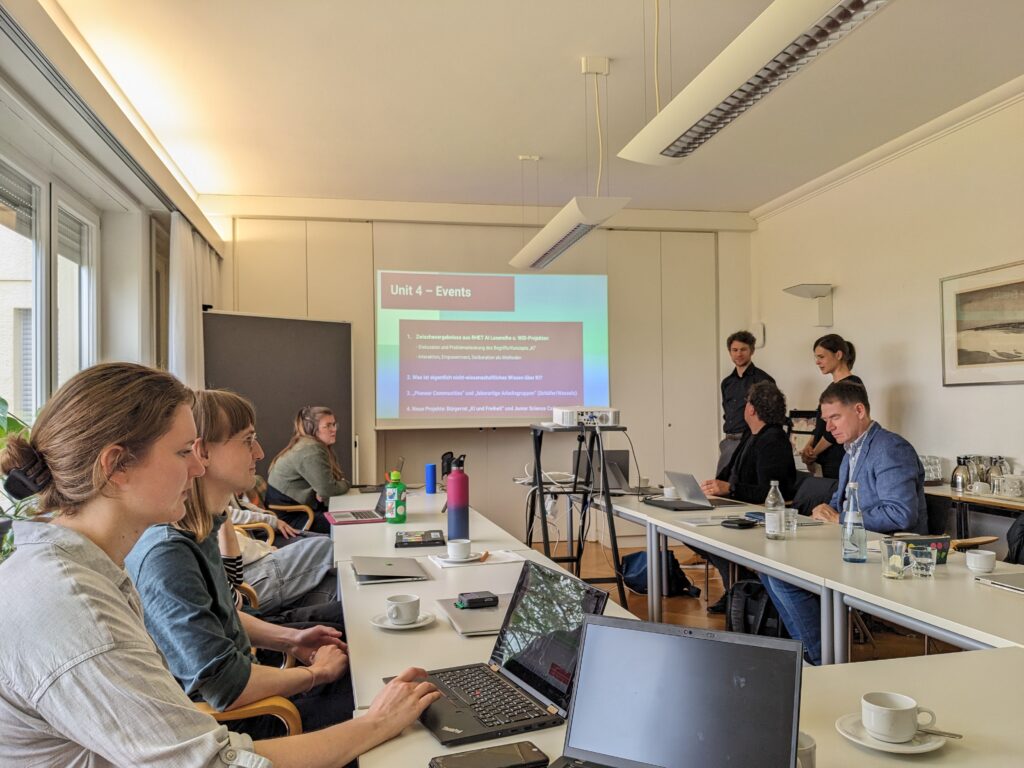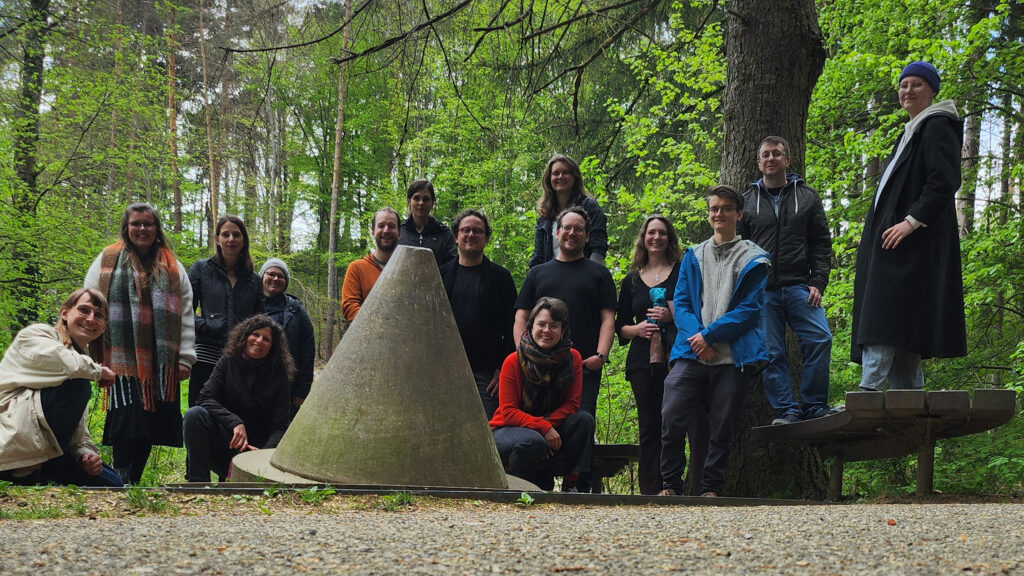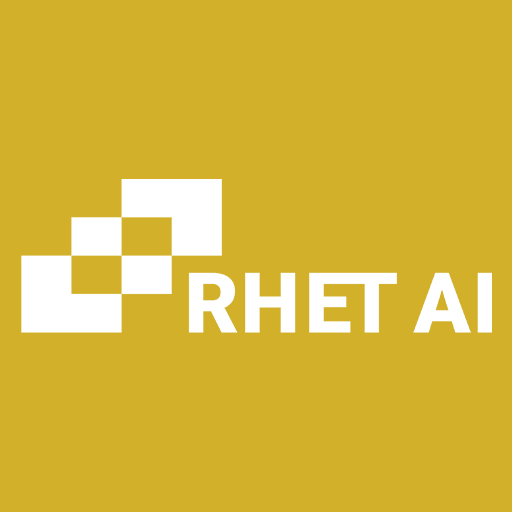On April 15, we, the RHET AI Center team got for our annual RHET AI Day. Since the RHET AI Center was founded in 2021, this day has been held as an opportunity for reflection and planning. The focus is always on two questions: Where are we as the RHET AI Center right now? And how do we want to position ourselves and develop further in the future?
The event took place in hybrid form. Some of the participants were connected online from Berlin and Karlsruhe, while the majority gathered in the guest house of the University of Tübingen.
For the first part of the event, reports from the units on the status quo were on the agenda. Unit 1 (Discourse & Narratives) began with a review of the DGPuK annual conference, which took place in Karlsruhe in February and March and was co-organized by the Unit 1 team. Part of the conference was also a reading followed by a panel discussion with the Austrian author Jörg Piringer, as well as Prof. Jan Nihues and Prof. Annette Leßmöllmann. The discussion was moderated by Dr. Thomas Susanka.
In addition to a review of past events, Unit 1 gave an insight into its current research, in particular the internal debate on the concept of the “black box” in relation to AI. Over the course of two coding days, the term was intensively discussed, categories were sharpened and initial results from the corpus (consisting of 1858 German newspaper articles) were interpreted.
The Unit 1 team is also involved in the founding of the new AI research focus of the Gesellschaft für Angewandte Linguistik (GAL). To date, the GAL has 15 sections and two research foci, the starting signal for the new focus “Artificial Intelligence” will be given on May 17th, 2024, as part of the Artificial Friday. Within this research focus, a network of doctoral students will be established, and initial results will be presented at the GAL annual conference in the fall.
Erwin Feyersinger presented an excerpt from his current research for Unit 2 (Visual Communication). In it, he deals with the effects of generative AI on animation production and the resulting changes for the industry. He categorized the current AI hype in this context and gave an assessment of the possible potential for the use of AI. He also spoke about this topic in detail again on April 27th, 2024, at the Internationales Trickfilm Festival in Stuttgart (ITFS).
Furthermore, Unit 2 gave an outlook on the interim status of the RHET AI anthology Artificial Turn — Interdisciplinary Perspectives on Artificial Intelligence (ed. by Anne Burkhardt, Susanne Marschall and Olaf Kramer), which is to be published as an open access publication under the wbg Academic label by Herder. The first contributions have already been published as pre-prints.
Unit 3 (Communicative Competence) gave a review of the numerous workshops that have been held over the past few months and which promote the unit's goal of teaching communicative competence in AI. Markus Gottschling also reported on his and Olaf Kramer's participation in the AlphaPersuade in February and on the networking event for AI in university teaching, which was organized by the Ministry of Science of the State of Baden-Württemberg in March.

Unit 4 (Events Unit) presented current results of the RHET AI reading series and the I'm a Scientist project, which takes place in cooperation with Wissenschaft im Dialog. The aim of Unit 4 is to organize events that impart knowledge about AI. In the course of this, the term or concept of AI was problematized, which the unit would like to explore further. In addition to “scientific” knowledge about AI, there are also forms of “non-scientific” knowledge. The group discussed what this form of knowledge is, what it entails and to what extent the two forms are linked and should be included in the activities of Unit 4.
With the Junior Science Cafés and a nationwide citizens' assembly project, Unit 4 presented its new public engagement projects. Anika Kaiser spoke about her doctoral project, which scientifically accompanies the Citizens' Assembly and deals with epistemic injustice and the inclusion of different types of knowledge in deliberative public engagement formats.
The unit presentations were followed by a lunch break and the second part of the event. The entire group went on a walk to the geographical center of Baden-Württemberg. In addition to a group photo, the time was mainly used to get to know each other even better as a team and to exchange ideas in a relaxed atmosphere. For example, the burning question of what each team member's favorite potato dish is, was answered.

After this refreshing walk, the group sat down again and decided which topics should be discussed together in the afternoon. From this, two groups were formed, which took around 45 minutes to discuss the selected topics.
Group one focused on the external impact of the RHET AI Center. On the one hand, publication options and externally effective products were discussed, such as a handbook or a special edition for a thematically appropriate magazine. On the other hand, the optimization of our homepage and social media channels as well as the work of the student editorial team were discussed.
Group two dealt with the conference, which will take place in Heilbronn in 2025 together with Experimenta and drafted initial ideas for the content and possible topics.
Following the group discussions, the results were compiled and explored together once again.
Overall, we can look back on an exciting and productive day that not only strengthened us as a team, but also inspired and advanced our further work. We would like to thank everyone who took part.





